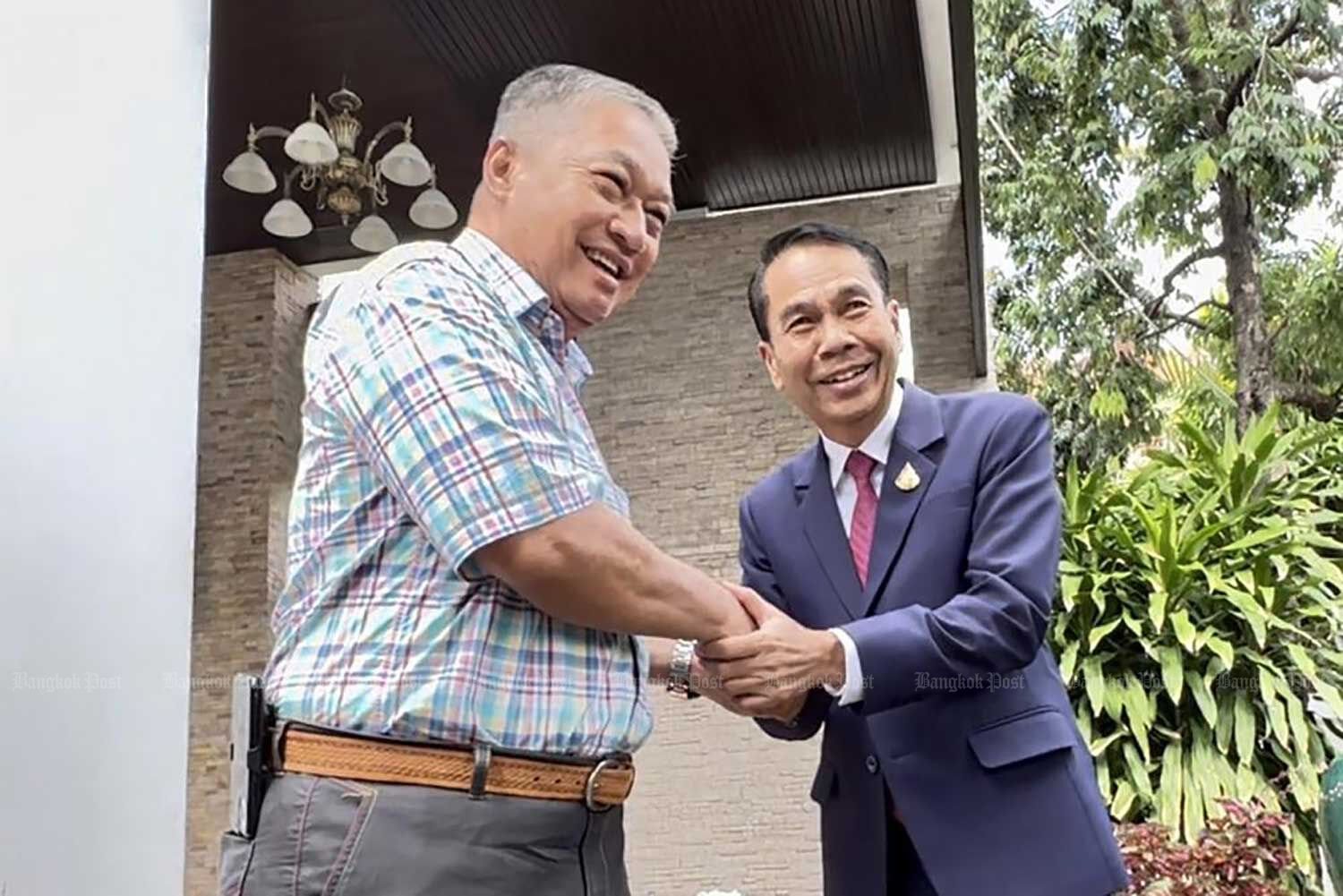Pheu Thai government opts for Chinese frigate

An unexpected turn of events saw the Pheu Thai-led government opting for a Chinese-made frigate over a submarine, after a prolonged period of uncertainty surrounding the original submarine purchase. The shift in decision came on the heels of China‘s inability to get the German-made MTU 396 engine for the submarine, as specified in the 2017 agreement.
China’s suggestion of using a homemade CHD620 engine in place of the German-made engine didn’t sit well with the Thai government.
The former Royal Thai Navy (RTN) chief, Choengchai Chomchoengpaet, expressed his readiness to recommend the Chinese-made engine after numerous negotiations. However, the government decided against the submarine procurement, suggesting a Chinese-made frigate as an alternative. Pheu Thai’s previous criticism of the submarine purchase when it was an opposition party hinted at this outcome.
Defence Minister Sutin Klungsang clarified that this decision didn’t come from the government or the Pheu Thai Party, but was a solution proposed by the Defence Ministry and the RTN.
A naval source supported this claim, stating that the frigate proposal emerged from a meeting between Sutin and the RTN. To distance the party from the decision, Sutin allegedly advised the navy to consider other options if the submarine deal didn’t materialise.
The RTN came up with two proposals – purchasing a Type 054A Jiangkai II frigate or a Corvette Type 056 Jiangdao offshore patrol vessel (OPV). Currently, the RTN has seven frigates in its fleet and plans to acquire an eighth, with an estimated cost of 17 billion baht, in the 2024 fiscal year.
South Korea
South Korea, which built the RTN’s seventh frigate, HTMS Bhumibol Adulyadej, for 14.9 billion baht, is a likely supplier for the new frigate.
While the submarine is crucial to the navy’s strategic and defence capabilities plan, the number has been scaled back from three to one. China is expected to compensate for its failure to meet the contractual requirements.
Talks between the navy and China Shipbuilding & Offshore International Co (CSOC), the company contracted to build the submarine, resulted in the firm offering free spare parts for eight years and free training.
If the Thai government had agreed to the engine switch, it would have had to negotiate with China to obtain two second-hand submarines for training purposes. However, CSOC failed to respond to this request, leaving the issue to the government to resolve, reported Bangkok Post.
The Pheu Thai-led government might consider a new submarine acquisition scheme, with Sutin showing interest in a German-made submarine under a barter trade agreement. This development has led political analysts to reassess Sutin’s role in military affairs, particularly military reforms.
The S26T Yuan-class submarine was due to be delivered to Thailand this year, but the pandemic has pushed the delivery date to April next year.
Follow more of The Thaiger’s latest stories on our new Facebook page HERE.
Latest Thailand News
Follow The Thaiger on Google News:


























